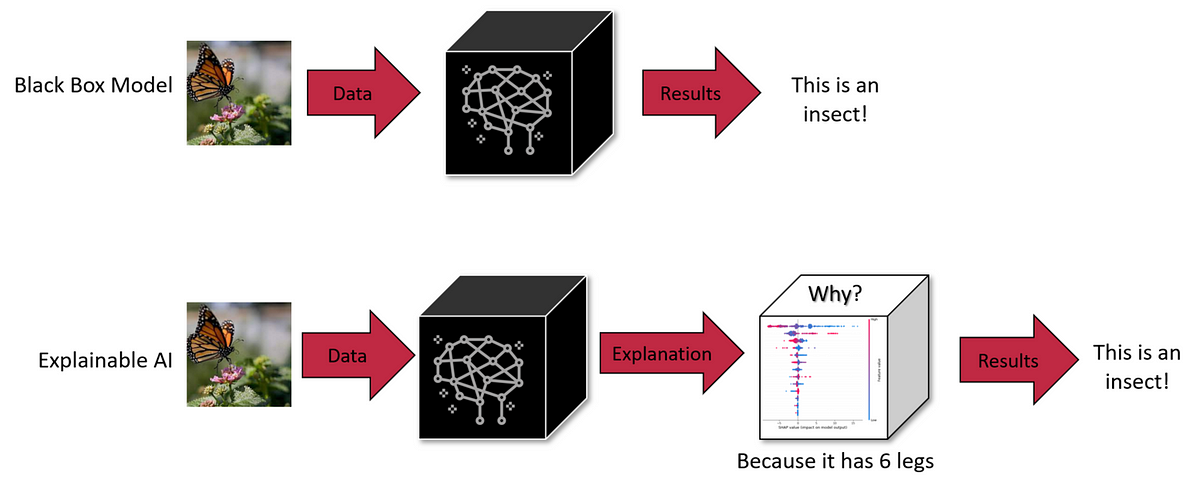The Evolution and Impact of AI Engineering
{ Trends, Research and Innovations }
💥Introduction :-
Artificial Intelligence (AI) engineering has become transformative force in modern technology, driving advancements across industries from healthcare to finance. As AI systems become more integrated into our daily lives, understanding the trends, innovations, and future directions in AI engineering is crucial. This blog delves into the evolution of AI engineering, explores current trends and innovations shaping the field.
💫💫The Evolution of AI Engineering💫💫
- Early Beginnings of AI :-
![]() src="https://blogger.googleusercontent.com/img/b/R29vZ2xl/AVvXsEg9IEkpcJI33TvKkhrGTyRrBeyOiWVrBtgcc9UzUgQgSYR1zGN7Q52_hgVAaFpKbKVaFgO2Jn7uBAtqHG6CIJZVV8gnmUTleo68Ar4Gcchkaz56Pkeiwwv5kmbVVB4a1MONEcXQJDJ1WWbd3LzSRyeGGc19kLNl_b61EbnrTfGwxWlNa0SUA3w6YlWiwyM/w293-h144/robo%201.jpeg" width="293" />
src="https://blogger.googleusercontent.com/img/b/R29vZ2xl/AVvXsEg9IEkpcJI33TvKkhrGTyRrBeyOiWVrBtgcc9UzUgQgSYR1zGN7Q52_hgVAaFpKbKVaFgO2Jn7uBAtqHG6CIJZVV8gnmUTleo68Ar4Gcchkaz56Pkeiwwv5kmbVVB4a1MONEcXQJDJ1WWbd3LzSRyeGGc19kLNl_b61EbnrTfGwxWlNa0SUA3w6YlWiwyM/w293-h144/robo%201.jpeg" width="293" /> |
| https://gautamsundar624.wixsite.com |
The concept of artificial intelligence dates back to the mid-20th century when pioneers like Alan Turing and John McCarthy laid the foundational theories. Turing's work on the Turing Machine and McCarthy's introduction of the term "artificial intelligence" at the Dartmouth Conference in 1956 were pivotal moments.
The AI Winters :-
The journey of AI has not been without its challenges. The AI winters, periods of reduced funding and interest in AI research during the 1970s and late 1980s, were marked by unmet expectations and slow progress. However, these phases were crucial for reevaluating approaches and setting more realistic goals.
Revival and Modern AI :-
The revival of AI, following periods of stagnation known as AI winters, began in the late 1990s and early 2000s, ushering in what is often referred to as an AI spring. This resurgence was fueled by significant advancements in machine learning algorithms, the exponential increase in computational power, and the availability of large datasets. Key milestones in this revival include the development of deep learning, with models like convolutional neural networks (CNNs) and recurrent neural networks (RNNs) revolutionizing tasks such as image and speech recognition.
Landmark achievements, such as IBM's Watson winning Jeopardy! and Google's DeepMind's AlphaGo defeating a world champion Go player, showcased AI's potential in solving complex problems. Modern AI technologies now encompass a wide range of applications, from healthcare and autonomous systems to natural language processing and beyond, continually reshaping industries and enhancing everyday life. However, as AI becomes more integrated into society, addressing ethical concerns such as bias, fairness, and data privacy remains paramount to ensure responsible and beneficial development.
 https://showroom.dotpe.in/temporary-1aitoday
https://showroom.dotpe.in/temporary-1aitoday
Trends in AI Engineering :-
- Advancements in Deep Learning and Reinforcement Learning:-
One of the most significant trends in AI engineering is the continued advancement and application of deep learning and reinforcement learning. Deep learning models, such as convolutional neural networks (CNNs) and transformers, have dramatically improved the capabilities of AI in tasks ranging from image recognition to natural language processing. These models excel in handling large datasets and complex patterns, leading to breakthroughs in fields like healthcare diagnostics, autonomous driving, and voice assistants. Reinforcement learning, another key trend, is gaining traction in areas requiring decision-making and strategy, such as robotics, gaming, and financial modeling. With the ability to learn and adapt through trial and error, reinforcement learning algorithms are paving the way for more sophisticated and autonomous AI systems.
- Edge AI and Explainable AI (XAI)...............!
Another notable trend in AI engineering is the rise of Edge AI and the growing emphasis on Explainable AI (XAI). Edge AI involves deploying AI models directly on devices at the edge of the network, such as smartphones, IoT devices, and sensors, to process data locally rather than relying on cloud computing. This trend reduces latency, enhances data privacy, and allows for real-time decision-making in applications like smart homes, industrial automation, and autonomous vehicles. Simultaneously, the demand for explainable AI is increasing as stakeholders seek transparency and accountability in AI decision-making processes. Techniques such as Local Interpretable Model-agnostic Explanations (LIME) and SHapley Additive exPlanations (SHAP) are being developed to provide insights into how AI models reach their conclusions, fostering trust and facilitating the adoption of AI in sensitive sectors like healthcare, finance, and law enforcement.
💢Research in AI Engineering💢
- Deep Learning Innovations : -
Research in AI engineering has led to significant advancements in deep learning algorithms. Convolutional Neural Networks (CNNs) continue to evolve, with improvements in architectures like Res Net and Efficient Net enhancing performance in image recognition and classification tasks. Additionally, Generative Adversarial Networks (GANs) have revolutionized fields such as image generation, data augmentation, and style transfer, enabling the creation of realistic images, videos, and even synthetic data for training purposes.
Transformer models have transformed natural language processing (NLP) and understanding. The development of models such as BERT (Bidirectional Encoder Representations from Transformers), GPT (Generative Pre-trained Transformer), and their successors has set new benchmarks in tasks like text generation, translation, and sentiment analysis. Researchers are continually refining these models to improve their accuracy, efficiency, and scalability.
🙏🙏Conclusion🙏🙏
Research in AI engineering is driving transformative advancements across various domains. From deep learning innovations and reinforcement learning to explainable AI, edge computing, and quantum AI, researchers are continually pushing the boundaries of what AI can achieve. As AI technologies become more integrated into society, addressing ethical and societal implications will be crucial to ensure responsible and beneficial development. By focusing on transparency, fairness, and security, AI research can contribute to a future where AI enhances human capabilities and addresses global challenges.
website average bounce rate



 https://showroom.dotpe.in/temporary-1aitoday
https://showroom.dotpe.in/temporary-1aitoday





إرسال تعليق